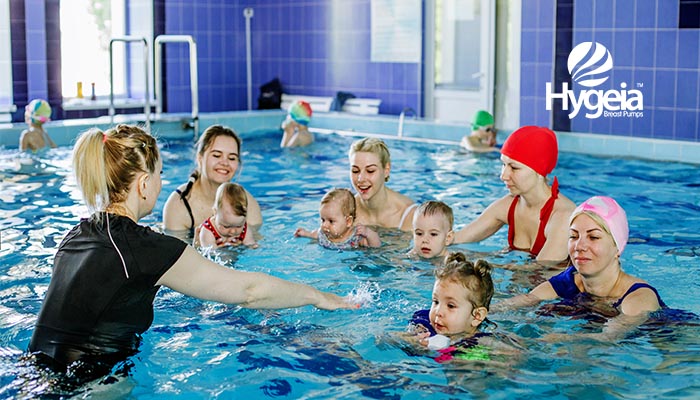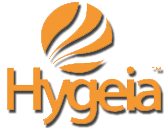
September is Neonatal Intensive Care Awareness Month (NICU Awareness), a time to recognize the incredible strength and resilience of NICU families. For mothers of NICU babies, breastfeeding can be a source of comfort, connection, and nourishment.
Challenges Faced by NICU Moms
NICU moms often face unique challenges in all aspects of mothering a newborn, but specifically, breastfeeding a NICU baby can be particularly difficult. These challenges may include:
Separation from their baby: Being unable to hold and feed baby can be emotionally taxing.
Pumping challenges: Maintaining milk supply while baby is in the NICU can be physically demanding.
Stress and anxiety: The stress of having a baby in the NICU can impact a mother’s milk supply as well as the overall ability to breastfeed.
The Benefits of Breastfeeding a NICU Baby
Despite these challenges, breastfeeding a NICU baby offers numerous benefits and is still very possible. Some of these benefits include:
Colostrum: The first milk produced after birth is rich in nutrients and antibodies that can help protect your baby from infections. While baby may not be able to latch, a mom can pump and the colostrum can still nourish baby.
Reduced risk of infections: Breast milk contains antibodies that can help protect your baby from infections, which are common in NICU babies.
Improved growth and development: Breast milk is specifically designed to meet your baby’s nutritional needs and can help promote healthy growth and development, which are all the more necessary in premature births and NICU babies in general.
Stronger bond: Breastfeeding can help you bond with your baby, even if they are still in the NICU and you cannot have skin-to-skin contact.
Support NICU Moms
Supporting a mother of a NICU baby can make a world of difference. By offering your support, you can help a NICU mom feel less alone and more empowered to care for her baby. Here are a few ways you can offer your support:
Be there for her: First and foremost, offer emotional support, a listening ear, and words of encouragement.
Help with practical tasks: Helping with what seem like simple household chores, errands, or childcare for older children can make a world of difference to a stressed NICU mom.
Respect her feelings: Understand that she may be feeling stressed, anxious, or overwhelmed. Avoid making assumptions or offering unsolicited advice.
Connect her with resources: While you do have to be careful about unsolicited advice, it can be helpful to be sure she is connected with information about local support groups, lactation consultants, or other resources that can help her.
Celebrate her strength: No matter how small, take time to acknowledge her resilience and the challenges she is facing. Let her know that you appreciate her strength and courage.
How Hygeia Health Can Help
At Hygeia Health, we understand the unique challenges faced by NICU moms and are here to give the best support.
Support resources: We offer resources and support to help NICU moms on their breastfeeding journey. Our website provides information on breastfeeding and pumping, and our customer service team is available to answer your questions.
Lactation assistance: Access an expert anytime, anywhere for assurance and support on your breastfeeding journey. We partner with Nest Collaborative to provide virtual breastfeeding consults covered by most insurance plans at no cost to you.
Get a free breast pump: We believe that every mother should have access to the tools and support they need to breastfeed their baby. That’s why we offer a free breast pump to NICU moms through our NICU Mom Support Program. Our high-quality breast pumps are designed to make pumping easier and more efficient, allowing you to focus on bonding with your baby.
Let’s work together to support NICU families and celebrate the incredible strength and resilience of these amazing mothers.

Hygeia Health is thrilled to announce that its innovative Hygeia Express breast pump has been awarded the prestigious 2024 Product of the Year by babyMaternity magazine in the coveted category of Breast Pumps & Accessories.
“The Hygeia Express breast pump is more than just a product; it’s a partner for modern mothers, offering unparalleled comfort, efficiency, and portability,” stated Kelly Cuellar, Vice President of Sales at Hygeia Health.
Hospital-Grade Suction Meets Portability
This esteemed recognition underscores the Hygeia Express’s exceptional performance, comfort, and portability, making it the ultimate choice for modern mothers. Designed with hospital-grade suction and gentle comfort in mind, the Hygeia Express caters to the needs of multitasking moms by offering optional wearable milk collection cups.
“This breast pump for on-the-go moms is amazing! I really like that it has hospital-grade strength and that it’s so comfortable to use,” said one of the moms in a review.
As a cordless, lightweight champion of convenience, the Hygeia Express empowers mothers with the freedom to pump anytime, anywhere. Its whisper-quiet operation ensures discreet pumping, allowing moms to seamlessly integrate breastfeeding into their busy lives.
“This breast pump is perfect for travel and it’s so convenient to use. I think this would be a perfect baby shower gift. I highly recommend it for any new mom,” shared another enthusiastic mother.
Real Moms Love the Hygeia Express
The Hygeia Express’s innovative technology mimics a baby’s natural suckling pattern, ensuring efficient and comfortable pumping sessions. Its superior design and quality have earned it widespread acclaim.
“I love this design and the quality is excellent! Great product!” said another review.
The babyMaternity Magazine Advantage: Real Parent Tested
The babyMaternity Magazine’s Awards Program stands out by involving a diverse panel of expectant mothers, new moms, and baby caregivers in the product evaluation process. This comprehensive approach guarantees that the awarded products truly meet the needs and expectations of real parents.
Join countless happy moms who trust and love the Hygeia Express. See if you qualify for a 100% insurance-covered pump today…

Breastfeeding: it’s the way anyone can level up to supermom status, right?
While it is an amazing journey, it is completely normal to hit a few bumps in the road. The good news is no mom needs to be alone in their journey! There is a ton of support available to help moms navigate this new chapter of motherhood and empower them to thrive with breastfeeding.
In this blog post, in the spirit of World Breastfeeding Week, we will discuss the best people and places to find breastfeeding support.
Healthcare Providers
Your doctor or midwife is a great place to start for support. They may not be the experts themselves, but they can likely provide you with initial information, point you in a good direction for resources, and even refer you to lactation consultants. Remember, they deal with moms who are new to breastfeeding on a regular basis.
Lactation Consultants
Lactation consultants are specially trained professionals who can help with breastfeeding questions, problems, and general support. They are wonderful assets for assisting with latching, milk supply, and other common issues. Today, most hospitals have a lactation consultant on staff. If one does not visit you upon delivery, don’t miss out. Request that the on-staff lactation consultant visit before your stay is over.
Support Groups
A mom tends to feel less alone about her struggles when she’s able to share her experiences with others who are going through or have been through similar challenges..Support groups can be a great way to connect with other breastfeeding moms and get the encouragement needed. This can also be a great way to receive tips from moms who’ve had to tackle the same issues. La Leche League offers support groups across the country or check with your hospital, as many offer support groups. If yours does not, the lactation consultant may be aware of a local group.
Partners and Family
Your partner and family can, and hopefully will, play an important role in your breastfeeding journey. They can provide emotional support, help with household chores, and take care of older children if needed. Of course, not every mom has this kind of support at home. In this case, sometimes friend circles can become like family and set up meal trains and regular check-ins to be sure a mom has the support she needs.
Online Resources & Hygeia Health
The beauty of today’s world is that not everything has to be within driving distance to be accessible. There are many online resources available, including websites, blogs, forums, and even support groups. However, the plethora of options available can be both a blessing and a curse. An already overwhelmed mom struggling in her breastfeeding journey likely doesn’t have the fortitude to sift through endless search results. Fortunately, there are trustworthy sources for information, support, and community, such as La Leche League, Academy of Breastfeeding Medicine (ABM), Healthline and The World Health Organization (WHO).
Hygeia Health
We at Hygeia Health are on the top of the list as well! We’re here to support you in all ways. Our website offers information and resources on breastfeeding and our customer service team is available to answer your questions. We also partner with Nest Collaborative to provide virtual breastfeeding consults accessible anytime, anywhere, covered by most insurance plans at no cost to you.
Remember, you’re not alone. There are many people and resources available to help you on your breastfeeding journey. Don’t be afraid to ask for help.

Breastfeeding is a beautiful journey, but it’s not always easy. Many mothers face significant obstacles that can make breastfeeding challenging to sustain. This World Breastfeeding Week, we want to shed light on these struggles and obstacles and offer support. This blog post will dive into those challenges.
Physical Challenges
Sore nipples, engorgement, and mastitis–ever heard of those? These are some of the most common physical hurdles moms face. These can be incredibly painful and downright discouraging for a mom. No matter how much she understands the benefits of breastfeeding, the pain can cause a mom to want to give up or feel incapable. Lack of sleep in the early days and weeks after birth, coupled with the demands of a newborn, can further exacerbate these issues.
One of the major causes for physical challenges, though, is inadequate latching, which is often a result of a mom not being well supported after birth. This can be particularly true for a first time breastfeeding mom who doesn’t receive support from a lactation consultant. When breastfeeding support is lacking from the start, a mom can be quickly deterred.
Psychological Challenges
While the previously mentioned painful experiences of things like cracked and bleeding nipples may sound traumatic, physical challenges are often treated and managed more easily than the mental issues moms can face.
Feeling inadequate, stressed, or isolated is not an uncommon experience for breastfeeding mothers. The pressure to succeed can be overwhelming, especially when coupled with the mantra that “breastfeeding is natural”. The physical struggles coupled with the flood of hormones that follow delivery can result in postpartum depression and anxiety, which can further complicate the early breastfeeding journey.
Additionally, some moms struggle with body image concerns. Bodies obviously change through pregnancy, and, typically, they don’t simply “bounce back” to their pre-pregnancy shape, weight, and size. Living in a ‘new’ body can also lead to mental challenges for moms.
Societal and Environmental Challenges
Lack of workplace support is a major barrier for many mothers in their breastfeeding journey. Limited maternity leave, lack of lactation rooms, and negative attitudes towards breastfeeding can make it difficult for working moms to continue breastfeeding once returning to work.
Additionally, access to quality healthcare and lactation support is also crucial to breastfeeding success, and unfortunately, in many corners of the world ( even in the United States), not every mom has both or either of these things.
Other socioeconomic disparities can impact a mother’s ability to access these resources, such as income, education, geographic location, and racial/ethnic disparities. Discrimination can play a role for some, as can living in a rural or low income area.
Knowledge and Information Gaps
Misinformation about breastfeeding is prevalent. Many mothers lack the knowledge and support they need to overcome challenges and this can lead to early cessation of breastfeeding.
Hygeia Health is committed to supporting mothers on their breastfeeding journey. Our breast pumps are designed with comfort and efficiency in mind. But we know that a great breast pump is just one piece of the puzzle. We believe in providing comprehensive support, including education, resources, and community.
By understanding the challenges mothers face, we can work together to create a more supportive environment for breastfeeding. Let’s break down the barriers and continue to close the gap that will help mothers achieve their breastfeeding goals.

World Breastfeeding Week is here, running from August 1-7, and this year’s theme, “Closing the Gap, Support for All,” underscores the critical need to improve breastfeeding support and reduce inequalities.
At Hygeia, we know that breastfeeding is a cornerstone of child health and nutrition, yet countless mothers face challenges that hinder their breastfeeding journey. Throughout the upcoming week, we take a deep dive into the current state of breastfeeding awareness and the challenges that many mothers face as well as resources for overcoming those challenges. We will also provide some best practices for successful breastfeeding.
The Breastfeeding Gap
The proven benefits of exclusive breastfeeding are endless. The perfectly balanced nutrition source provides essential antibodies and nutrients that protect infants from a range of illnesses and can reduce infant mortality by up to 13%. The World Health Organization estimates that breastfeeding could save the lives of over 820,000 children under five years of age annually.
Unfortunately, breastfeeding rates vary significantly across the globe, with disparities evident among socioeconomic groups, ethnicities, and geographic locations. These disparities highlight the urgent need for targeted support to ensure all mothers have the resources and encouragement they need to breastfeed successfully, thus the theme of “Closing the Gap” for this year’s World Breastfeeding Week.
The Breastfeeding Challenge
New mothers often encounter significant hurdles in establishing and maintaining successful breastfeeding. Physical challenges such as sore nipples, insufficient milk supply, or baby latching difficulties can be overwhelming especially with many moms feeling a lack of support during that critical first week.
Societal pressures, including a lack of workplace support, inadequate maternity leave, and cultural norms that prioritize formula feeding, can also discourage breastfeeding and, again, create a lack of support even for those mothers who desire to breastfeed. Additionally, misinformation and limited access to lactation support can contribute to breastfeeding cessation.
Collectively, these situations and factors create a complex environment that makes it difficult for many women to achieve their breastfeeding goals.
Overcoming The Challenges
The good news? Many organizations and even individuals–moms like you–are dedicated to making breastfeeding less of a challenge for moms globally, thus the initiative of World Breastfeeding Week. This movement is initiated by the World Alliance for Breastfeeding Action (WABA), which is dedicated to the protection, promotion and support of breastfeeding worldwide. To address the challenges of breastfeeding, comprehensive support systems must be in place: education, counseling, and practical assistance.
Hygeia is excited to have more resources than ever available to support mothers with the launch of our new website. Not only does our parent blog offer new education on a weekly basis, but we also partner with Nest Collaborative to provide virtual breastfeeding consults accessible anytime, anywhere, covered by most insurance plans at no cost to you.
Breastfeeding Best Practices
Along with specialized support, knowing and understanding the best practices of breastfeeding can heavily impact a mom’s success and decision to stick with breastfeeding and reach her goals. Early initiation by breastfeeding within the first hour of baby’s life is the first step every mom should aim to achieve while also taking advantage of any on-staff lactation consultants at the hospital.
Moms should strive to breastfeed for the first six months with breast milk as the sole source of nutrition. Beyond that, babies will highly benefit from the breast milk nutrition for the next two years, but should also be introduced to complementary foods after six months of age. It is also imperative to build a strong support system as a breastfeeding mother. This includes family, friends, healthcare providers, and lactation consultants.
Commitment to Supporting Mothers
At Hygeia Health, we are dedicated to empowering mothers through high-quality breast pumps and comprehensive support. Our products are designed to make breastfeeding more comfortable and efficient, while our resources provide valuable information and guidance.
World Breastfeeding Week is an opportunity to raise awareness about the importance of breastfeeding and to advocate for policies that support breastfeeding mothers. Let’s work together to close the breastfeeding gap and ensure that every mother has the support she needs to nourish her baby through breastfeeding.





